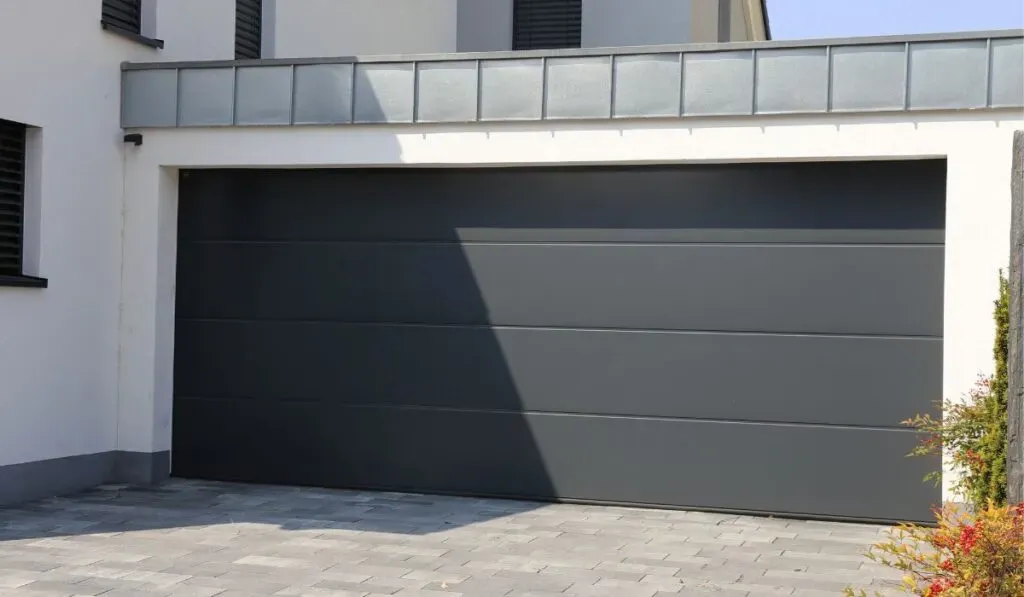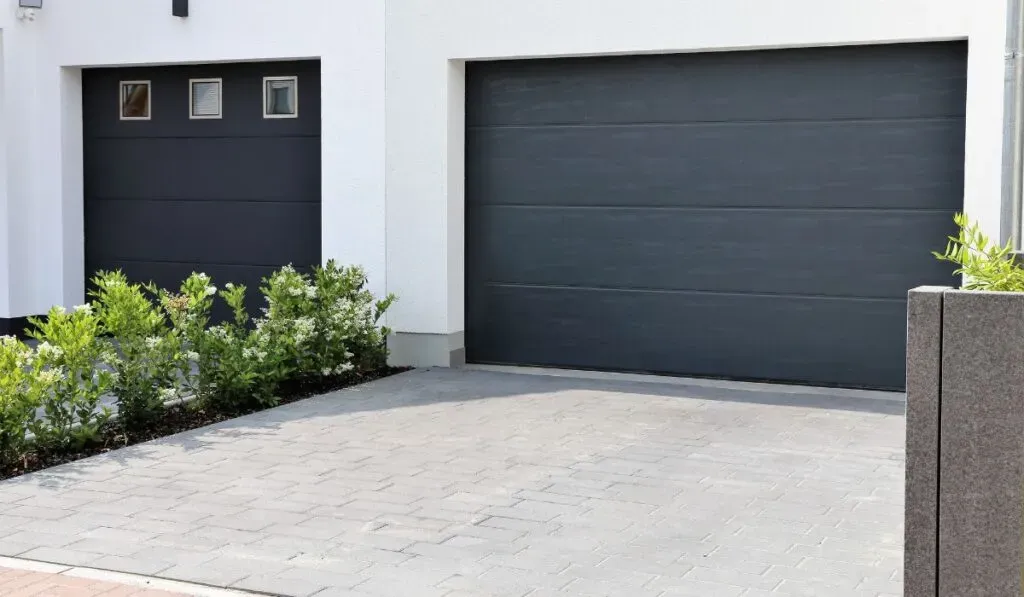
Choosing the best garage doors for coastal areas requires selecting anti-corrosion materials like aluminum, fiberglass, and galvanized steel combined with coastal-rated hardware such as 304 and 316 stainless steel to withstand salty air and humidity.
Proper finishes like powder coating and anodizing, along with maintenance plans and warranties, help protect against rust, wind load, and ensure long-lasting durability in coastal climates.
Understanding Coastal Challenges
Coastal areas can be tough on garage doors. The salty air, moisture, strong winds, and sunlight all take a toll. So, picking the best garage doors for coastal areas means thinking about these things. You want doors that last long and hold up well.
Salty Air Exposure
Salt in the air causes metal parts to rust fast. This is called salty air corrosion. It damages many usual garage door materials.
Look for corrosion-resistant or rust-resistant garage doors. They handle frequent saltwater exposure better.
- The ASTM B117 salt spray test checks how well stuff stands up to salty air.
- Doors that pass this test work better near the coast.
Moisture Resistance
Coastal places often have high humidity. This can make wood doors rot or grow mildew if they aren’t treated right.
Fiberglass or vinyl doors resist moisture better. These are good moisture resistant choices.
- Pick rot resistant materials to avoid decay from wet conditions.
Wind Load Considerations
Strong winds hit coastal homes hard sometimes. Garage doors must handle these gusts without breaking.
- Use hurricane rated garage doors made to survive big storms.
- Check for garage door wind load certification to match local rules.
- Choose storm-rated or wind-resistant garage doors for extra safety.
They keep your home safe and working fine during rough weather.
UV Radiation Protection
Sunlight’s UV rays can fade paint and ruin finishes on doors over time.
Choose materials with UV resistant finishes so colors don’t fade fast.
- Doors with UV resistant garage doors stay bright even under harsh sun.
This way, your door looks good longer despite warm sunlight damage.
Selecting the Right Finishes and Hardware
You need hardware and finishes that fight corrosion by the sea:
- Aluminum is light but strong and resists rust naturally.
- Fiberglass resists dents and scratches while insulating well.
- Composite mixes materials to boost durability without losing style.
- Vinyl handles moisture and fading with little upkeep.
- Galvanized steel has a rust-proof coating for strength.
Also, use marine-grade hardware like 304 or 316 stainless steel. These parts survive salty air much better than standard metals.
If you want help finding coastal-rated garage doors built tough for salty air, storms, and sun, contact us anytime at 24/7 Garage Door Repair. We’re ready to answer questions about durability and protection!
Comparing Garage Door Materials for Coastal Climates
Picking the best garage doors for coastal areas means looking for materials that fight off rust, moisture, and salt spray. Coastal climate garage doors need to handle high humidity and tropical weather without losing their strength or good looks. The ASTM B117 salt spray test checks how well materials resist corrosion in salty air. Below, you’ll find a quick look at common garage door materials made for coastal zones.
Here’s what matters most:
- Corrosion resistant materials
- Marine-grade materials
- Salt spray resistance
- High humidity environments
- Coastal corrosion testing standards
Aluminum Garage Doors: Lightweight and Corrosion-Resistant
Aluminum garage doors work great by the coast because they don’t rust easily. They often come with powder-coated or anodized hardware. This adds extra defense against salty air.
- Aluminum fights rust better than steel.
- Powder coating process and anodizing finish protect the metal.
- These doors are light, so openers don’t get worn out fast.
- Cleaning them once in a while keeps them looking nice.
Compared to galvanized steel doors, aluminum doesn’t need heavy coatings but can dent easier if hit hard. Powder-coated hardware keeps hinges and fasteners safe from salt damage.
Fiberglass Garage Doors – Excellent Saltwater Resistance
Fiberglass doors handle salty air well because they don’t absorb moisture or rot.
- They resist saltwater better than wood or metal.
- Fiberglass won’t mildew or warp from humidity.
- You won’t have to paint or seal these often.
These features make fiberglass a solid choice for tropical climate doors that face constant salt spray.
Composite Garage Doors – The Look of Wood Without the Upkeep
Composite garage doors mix wood fibers with resin or urethane. They look like real wood but avoid problems like warping or rotting.
- They offer natural textures that fit coastal styles.
- Built-in thermal breaks stop warping from heat changes.
- Many use eco-friendly materials, which is better for the planet.
Composite faux wood garage doors give style plus toughness. They work well in humid places near coasts and need little upkeep.
Vinyl Garage Doors: Rust-Proof and Low Maintenance
Vinyl garage doors won’t rust since they don’t have metal parts exposed to salty air.
- Their UV resistant finishes keep color from fading under strong sun.
- Rust-resistant hardware matches vinyl’s durability.
Vinyl can expand a bit in extreme heat but stays stable more than untreated metal. Cleaning them regularly helps keep their paint looking good for years near the ocean.
Need Reliable Coastal Garage Door Service?
At 24/7 Garage Door Repair, we offer garage door solutions made tough for coastal climates. Need help installing, maintaining, or fixing your door? We work around the clock!
Call now or get a free quote online to keep your home safe against harsh shore weather!
Choosing the Right Hardware and Finishes for Coastal Garage Doors

Picking hardware and finishes that fight rust is key for garage doors near the ocean. Salt air and humidity cause regular metal parts to wear fast. Using strong materials like 304 stainless steel hardware or 316 stainless steel hardware helps your door last longer.
304 stainless steel hardware works well for places close to the coast but away from direct salt spray. But if your home faces the sea, 316 stainless steel hardware is better. It has molybdenum, which makes it tougher against salty conditions.
Finishes also matter a lot:
- Powder-coated hardware uses an electric charge to stick paint tightly on metal. This stops chips, fading, and rust better than normal paint.
- Anodized hardware gets a special electric treatment that makes aluminum’s surface thicker. It stops corrosion and keeps a smooth metal look.
Choosing these materials keeps things like rusty screws or broken hinges from ruining your garage door because of salty air.
Protective Coatings and Finishes That Extend Door Life
Adding good coatings protects both how your door looks and how long it lasts:
- The powder coating process sprays dry paint onto metal using electricity. Then heat sets it hard so it blocks sun damage, moisture, scratches, and chemicals.
- Anodized hardware gets a thick surface layer on aluminum that stops peeling or cracking even with salty ocean wind.
Galvanized steel garage doors coastal homes have double defense. Zinc keeps base metal safe while powder coating or anodizing guards against wear.
These finishes help your door fit coastal home styles—from white shades to soft earth colors—while standing up to harsh weather.
Top Materials & Corrosion Protection Benefits at a Glance
For help choosing the right anti-corrosion hardware or custom garage doors fit for your seaside home—reach out anytime at 24/7 Garage Door Repair. Our team stands ready day or night to help with quotes or emergency fixes that keep your property protected all year!
Maintenance Tips for Coastal Garage Doors
Garage doors near the coast need special care. Salt air and humidity can wear them down faster. Good routine care keeps your doors working well and looking nice.
- Salt air exposure causes rust and damage.
- Regular checks help catch problems early.
- Using the right materials can stop corrosion.
Keeping up with regular garage door maintenance for coastal areas helps ensure your door withstands salt and humidity over time.
Rinse Doors Regularly with Fresh Water to Remove Salt Buildup
Salt builds up on doors from the ocean air. It makes metal parts rust fast. To stop this:
- Rinse your door with fresh water every week.
- Use a gentle spray or hose so you don’t hurt the finish.
- Pay special attention to edges, hinges, and tracks where salt hides.
Rinsing often keeps salt off the surface. It helps protect finishes that are made for coastal areas. ASTM B117 tests show that washing off salt saves paint and metal.
Inspect and Lubricate Moving Parts as Needed
Coastal moisture can cause garage door parts to wear out quicker. To keep things running smooth:
- Look over rollers, hinges, springs, tracks, and screws once a month.
- Use stainless steel fasteners like 304 or 316 grades—they don’t rust like regular steel.
- Put on silicone-based lubricant made for garage doors. Skip oil-based stuff; it grabs dirt.
Lubricating cuts down squeaks and stops parts from wearing out too soon.
Touch Up Any Scratches or Chips in the Finish
Scratches let salty air reach metal inside the door. Fix these spots fast by:
- Using paint or coatings approved by the door maker to cover scratches.
- Adding sealants made for coastal use gives extra water protection.
Fixing scratches right away keeps your door looking good. It also protects it from getting worse over time. Many coastal warranties require you to do this kind of care to stay valid.
For advice about the best garage doors for coastal areas—like which materials resist corrosion and which finishes last longer—check our guides on wind load ratings, finish durability, and installing new doors.
If you need expert coastal garage door repair services to address issues from salty air exposure, contact 24/7 Garage Door Repair anytime. Our team inspects your door, fixes problems fast, and offers tips to keep it strong year-round. Get a quote today!
Coastal Style and Design Ideas for Garage Doors
Picking the best garage doors for coastal areas means mixing style with strength. Coastal garage doors should show the easy, breezy feel of beach life. At the same time, they need to stand up to salty air and rough weather. You can go for classic coastal charm or a sleek modern design. Either way, your door will boost your home’s look and last long by the shore.
Here are some ideas for coastal garage doors:
- Use light or neutral colors that fit the beach vibe.
- Choose designs that match a beach house inspired style.
- Pick hardware that adds a cool coastal touch but stays tough.
- Think about adding windows or glass panels to bring in natural light.
Consider decorative hardware with a coastal theme
Adding decorative hardware can really bring out a coastal style while staying practical. Go for functional decorative hardware made from strong materials. For salty air and humidity, 304 stainless steel hardware or even better, 316 stainless steel hardware, work well.
Popular designs include:
- Hammered metal finishes
- Rope accents
- Nautical-inspired handles
These styles add charm without giving up function.
Incorporate natural light with windows or glass panels
Adding windows or glass panels lets in natural light. That makes your garage feel brighter and more open inside. It also looks nice from outside.
Think about these options when picking garage door window styles:
- Frosted glass panes keep privacy but still let light shine through.
- Clear glass arranged horizontally can remind you of ocean waves.
Bringing in natural light helps create a fresh vibe for your beach house.
Key Takeaways:
- Garage Door Color Palette: Use UV resistant finishes in light or neutral tones to prevent fading.
- Decorative Hardware Designs: Choose 304 or 316 stainless steel hardware with coastal details.
- Natural Light Features: Pick window styles that give you light while keeping privacy for beach homes.
Putting all this together gets you a durable and stylish garage door that fits right by the coast.
Building Codes and Regulations for Coastal Garage Doors
Living near the coast means dealing with strong winds, storms, and salty air. Local building codes make sure garage doors handle these problems. These rules protect your home by requiring strong and durable doors.
Here’s what you need to know about coastal garage door regulations:
- Garage doors must stand up to strong wind loads, especially in hurricane zones where winds can hit over 100 mph.
- Many codes demand hurricane-rated or storm-rated garage doors. These keep your home safe during bad weather.
- Doors must meet certified compliance standards like ASTM E330 or Miami-Dade approvals for impact resistance.
- Materials need to be tough but also resist corrosion from salt air.
- Local building codes change from place to place, so check what your city or county requires before buying.
